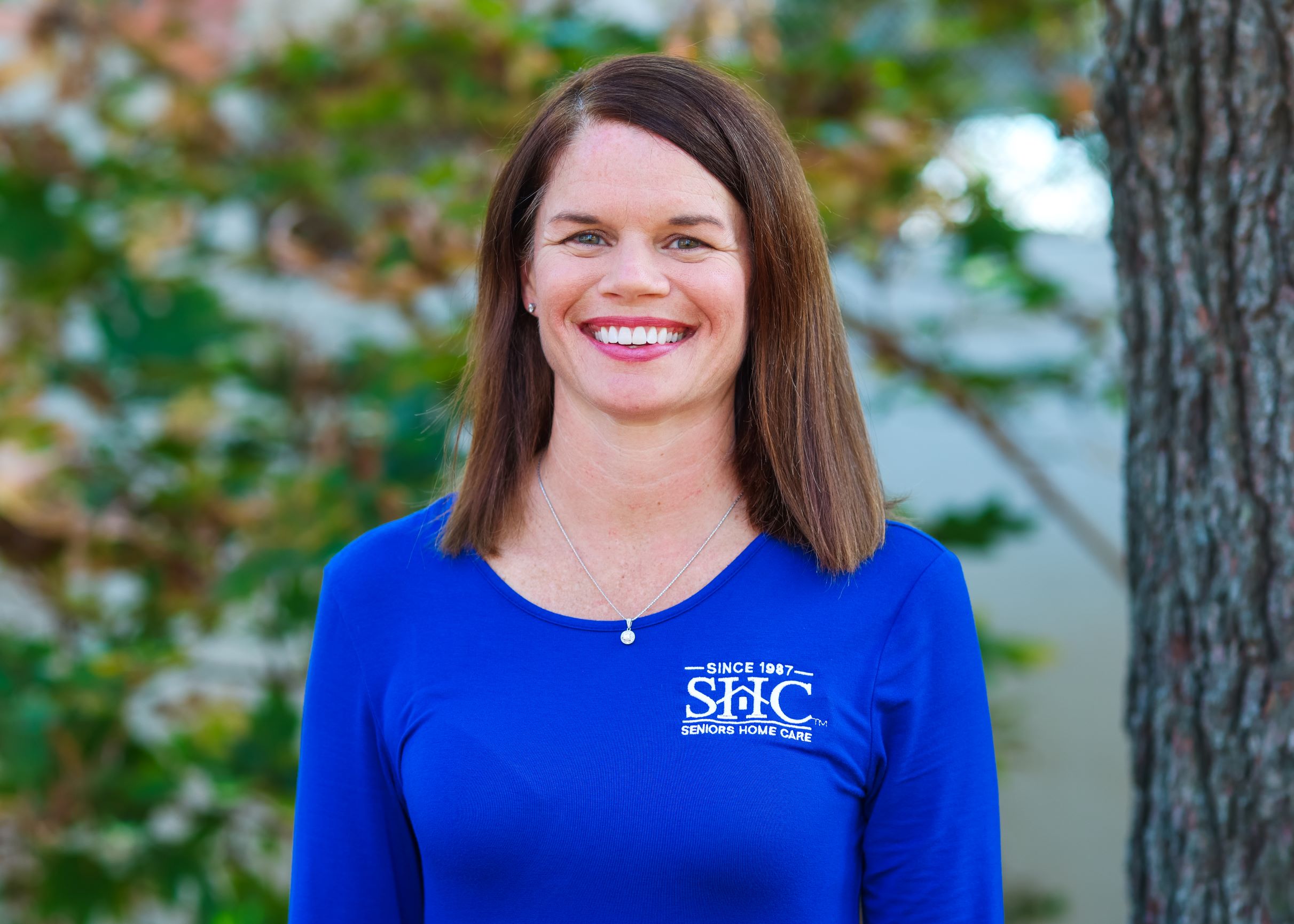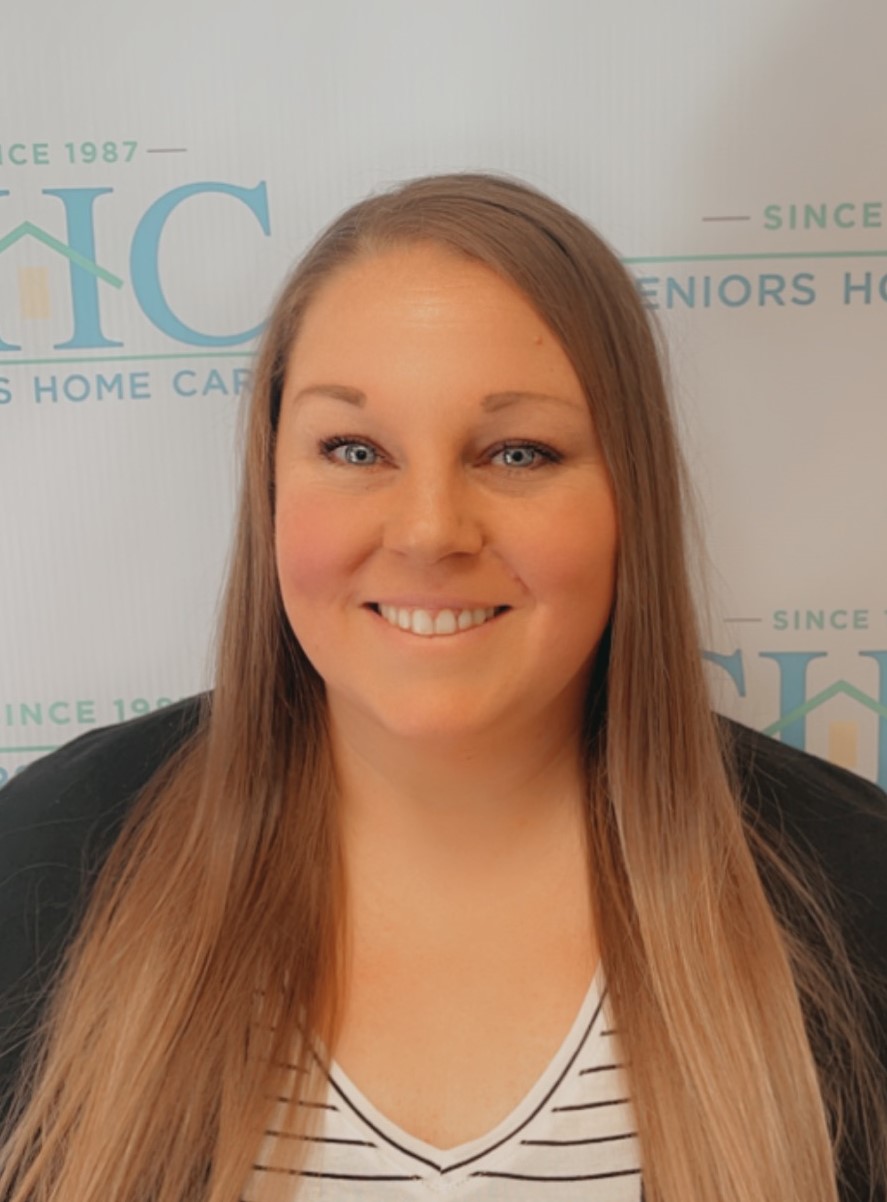Newsletter Archive
2024 | Edition 3

Greetings,
As summer begins turning to fall, we’re excited for cooler weather and the annual SHC company picnic! This year’s picnic will be on Saturday, October 5th. It’s always great to spend time away from the office with our incredible caregivers and their families. Everyone enjoys the chance to relax and get to know one another better with barbeque and bingo.
We’re also getting excited to introduce a new service that we are developing. This new program, called Sage, will be a specialty service offering premium care for individuals with dementia, provided by caregivers specifically trained for person-centered dementia care. We will share more information soon, when the service is officially available.
In preparation for the launch of Sage, the entire office staff recently completed the Alzheimer’s Association’s essentiALZ® training and certification, which will be required for all caregivers providing care to Sage clients. We’re really excited to roll out this innovative program soon!
We hope everyone has enjoyed a great summer!
Yours in Service,
Gretchen & Ryan Whittington
Healthy Aging Month
Healthy Aging Month is observed during the month of September. This observance raises awareness on the physical and mental health of older adults and serves as a reminder that as we age, our minds and bodies change. It is important to maintain a healthy lifestyle to help deal with those changes and to help prevent some common age-related health problems.
You can take a proactive approach to aging by adopting healthy habits and behaviors, managing existing health conditions, and staying connected to your community. Consider practicing the tips below to help you stay active and independent as you age.
- Eat and Drink Healthy. Dietary needs may change as you age. A healthy eating plan includes nutritious foods that are low in cholesterol, fat, and artificial ingredients. You should also drink plenty of liquids, especially water, to stay hydrated. Eat nutrient dense foods like fruits, vegetables, whole grains, lean meats, and low-fat dairy products.
- Move More, Sit Less. Staying active can help you prevent, delay, and manage chronic diseases, improve balance and stamina, reduce the risk of falling, and improve brain health. Aim for moderate physical activity, like walking, at least 150 minutes a week (22-30 minutes a day) and muscle strengthening activities, like carrying groceries, at least 2 days a week. Always consult with your doctor before starting a new exercise regimen.
- Get Regular Checkups. It is vital to go to the doctor for regular health screenings for healthy aging. Regular checkups help doctors catch chronic diseases early and can help patients reduce risk factors for disease, such as high blood pressure and cholesterol levels. In some cases, regular checkups have been linked to improved quality of life and feelings of wellness.
- Be Aware of Changes in Brain Health. Everyone’s brain changes as they age, but dementia is not a normal part of aging. There are a variety of healthy behaviors that can be done to reduce age-related cognitive decline or manage dementia. Engaging in social and intellectually stimulating activities, getting enough sleep, and not smoking are a few actions you can take. See your doctor if you have questions about memory or brain health.
For additional resources and information on healthy aging, visit the National Institute on Aging, Healthy Aging website.
Source: dhs.gov
Caring for Someone with Cognitive Decline? Koradel is Here to Support You.
As a caregiver, managing finances on top of the myriad of other responsibilities can be overwhelming. Missing a bill or dealing with fraud is a constant worry. Koradel Capital, LLC specializes in daily money management (DMM) services tailored to meet your client’s or loved one’s unique financial needs.
What is a Daily Money Manager (DMM)?
A DMM helps individuals manage everyday financial tasks like paying bills, tracking expenses, organizing documents, and monitoring accounts for fraud. By handling these tasks, a DMM reduces financial stress and ensures finances are managed efficiently.
How We Help
Koradel offers a full range of services, including:
- Bill and Subscription Management
- Expense Tracking and Financial Reporting
- Fraud Alerts and Monitoring
- Spending Plans (Budgets)
- Mail Management
- Cash Flow Projections and Analysis.
- File Management
- Tax Organization
- Financial Problem-Solving
Regular updates keep everyone informed about your client’s or loved one’s financial status. We ensure that important documents are easily accessible and up-to-date. This level of organization is invaluable when making decisions.
Is a DMM Right for You?
Call us for a free consultation to see if Koradel is a good fit for your needs. Partnering with Koradel lets you focus on what truly matters—providing emotional and physical care. We keep a watchful eye on the finances, giving you one less thing to worry about.
https://www.koradelcapital.com
314-377-6885
Get to Know…Erin Lanasa (Care Coordinator)
This edition’s highlighted staff member is Erin Lanasa! As one of SHC’s Care Coordinators, she is a key player in filling client schedules with ideally suited caregivers. She is also a member of the after-hours on-call team.
Fun facts about Erin:
- Favorite movies are the Hunger Games series
- Loves all types of crafts and do-it-yourself projects
- Proudest accomplishment is becoming a mom to her beautiful 14-year-old daughter, Taylor
- Favorite city is Gulf Shores, Alabama, where she has been on many family vacations
- Enjoys camping and floating on the Black River
Six Things You Can Do Right Now to Prevent Falls at Home
The CDC reports one in four Americans aged 65 and older falls each year. With more seniors choosing to age in place and stay at home, the risk of falling increases.
Here are some areas you can examine in your home right now to reduce the risk of falls.
Tips to prevent falls at Home:
1. Rugs, Mats, Carpets
- Start by checking if the front doormat moves when you step on it.
- Purchase non-skid padding for the mat or replace it with a non-skid mat.
- Apply the same strategy to all carpets and rugs in your home.
- Ensure you have a non-skid mat in the bathtub or shower.
2. Stairs
- Ensure handrails are in place and sturdy.
- Install a contrasting non-skid step edge to enhance visibility.
- Consider installing a chair lift or moving to a one-story home to reduce the need for stairs.
3. Bathroom
- Install grab bars for physical assistance.
- Use a tub bench with a handheld shower if you struggle to get into the tub.
- Use a shower chair with a handheld shower if you can’t stand for long periods.
4. Clutter
- Remove all clutter from the floor.
- Secure loose electrical or cable cords by stapling them along walls or sheathing them.
- Ensure the floor is completely dry to prevent slipping.
5. Lights
- Ensure all walking paths are well-lit.
- Avoid bright lights that cause glare.
- Use night lights in the bathroom and bedroom.
- Consider smart lights that are voice or noise-activated to avoid fumbling for switches.
6. Doctor
- Have your eyes and ears tested regularly.
- Ensure prescriptions for glasses and hearing aids are up-to-date.
- Contact your doctor if you notice cognitive changes, physical weakness, or side effects from medication.
- Communicate frequently with your healthcare provider about any changes in your health.
Taking these steps can significantly reduce the risk of falls in your home and ensure a safer living environment.
Source: blog.aginglifecare.org
Testimonial
"It has really helped a lot. I lose steam about 4 o'clock in the afternoon so they help me. All the caregivers that have come have exceeded my expectations."
Hoyt W.